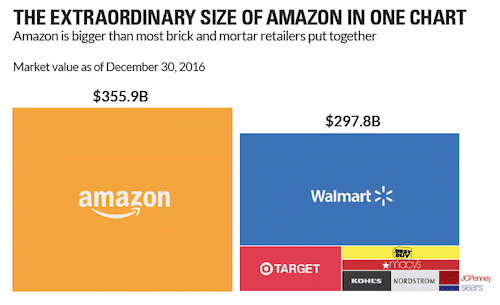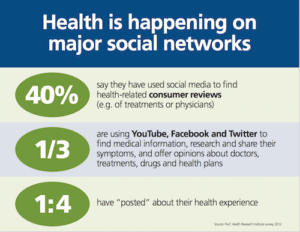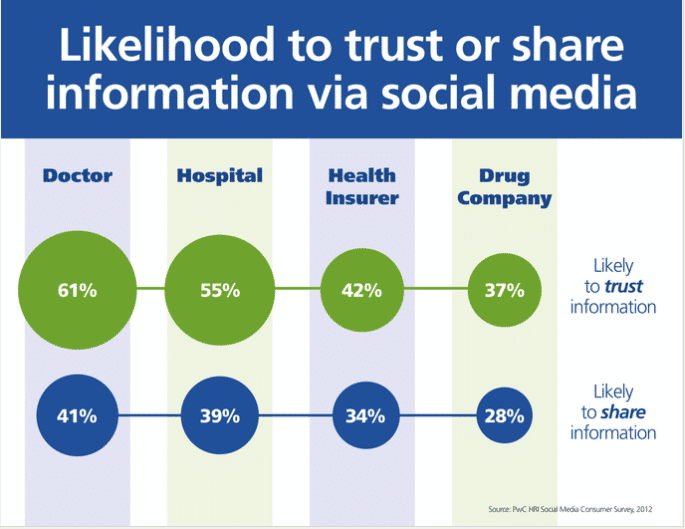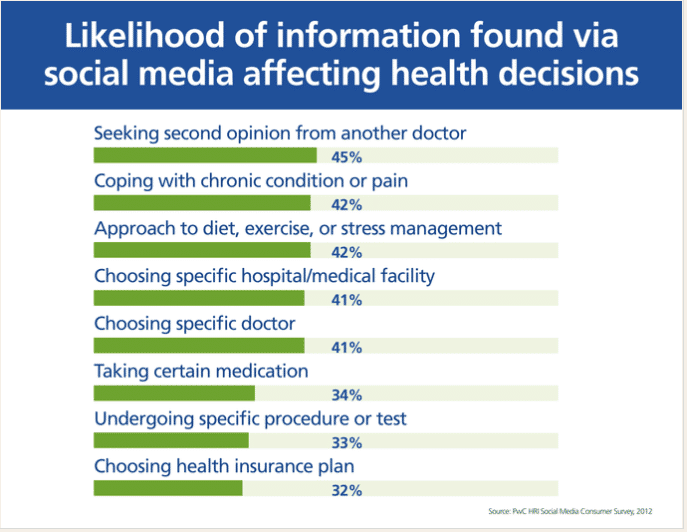How Social Media is Driving Today’s Healthcare Decisions

Sears, JCPenney, Macy’s and many other department store chains have downsized and properties have closed. We’ve lost track of the exact numbers, but about 17 national firms have shuttered several hundred retail locations.
This trend has been fueled largely by the pervasive convenience of the Internet. In the retail world, the general public has embraced online buying as never before. As of 2016 year-end, Amazon (market value of $356B) had become larger than the combined value of branded brick and mortar retailers (8 retailers at $298B).

[Credit: Chart by Visual Capitalist]
Today’s health care shopper is also online…
In addition to the countless health and wellness websites and a similar number of practice and personal sites by hospitals, medical groups, doctors, surgeons and other providers—it turns out that health is happening on major social networks.

PwC Health Research Institute
Healthcare’s prevailing marketing venue is definitely digital, where no less than 40 percent of users are researching consumer reviews and what others say about doctors or treatments. What’s more, it’s a serious give-and-take proposition—over 30 percent use YouTube, Facebook and Twitter to find and to share info and opinions.
The largest audience group, Millennials, are “digital natives.” They have always had the Internet and social media in their lives. For this group in particular, as well as many other sectors, interaction via social media means trusting and/or sharing information. Doctors and hospitals top the list for both trust and share.
And social media impacts health decisions…
Among the most significant influences of social media on the decision process are: seeking a second opinion (45 percent), choosing a specific hospital or medical facility (41 percent), and selecting a specific doctor.
It’s clear that the Internet and social media have changed consumer habits. Both merchandise and medicine are presented and selected online. Customer service, as well as the significant interaction of online comments and reviews, drive the shopping and the decision process. Social media plays a vital role in bringing new patients and cases to you. Give us a call. Please let us know when we can talk about your healthcare marketing.
Related Articles:
Digital Healthcare Decisions: Social Media Opportunity for Marketers
Internet Marketing and Healthcare's Digital Decision Makers
Social Media is Changing Healthcare











